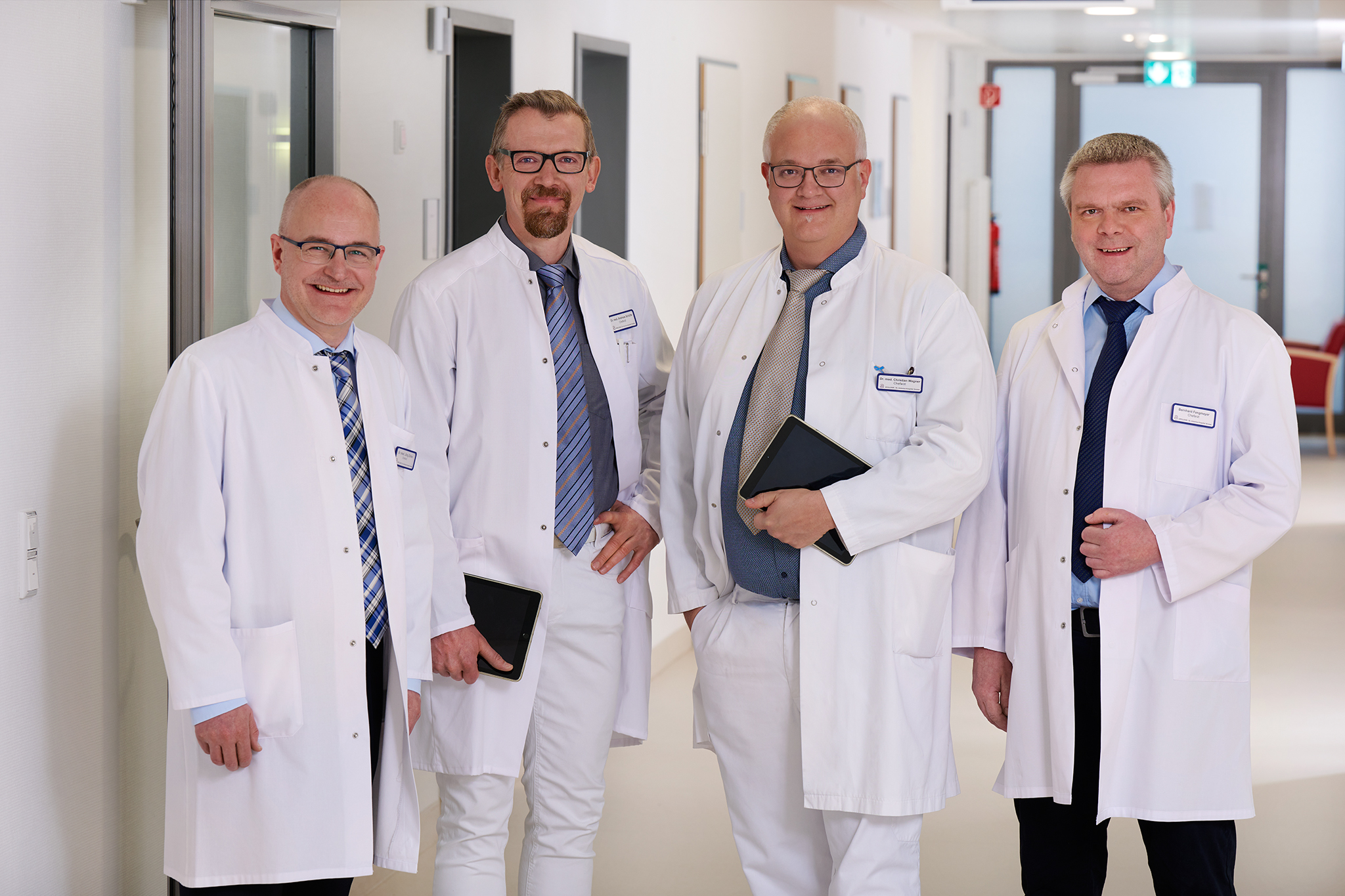
Gronau, 15 September 2025. On today’s European Prostate Day, attention is drawn to an organ that most men hardly notice: the prostate (prostate gland). It plays a crucial role in reproduction but can also be affected by serious diseases. Around 70,000 men in Germany are diagnosed each year with a malignant change of the prostate – prostate cancer.
“The insidious aspect is that the disease often progresses without symptoms – especially in its early stages, prostate cancer causes no discomfort. In addition, there are certain, less aggressive types of prostate cancer that require individual clarification and counseling. If a tumor is detected at an early stage, the outlook is very good – the later it is diagnosed, the worse the prognosis,” explains Dr. Christian Wagner, one of the four Chief Physicians of the Department of Urology at St. Antonius-Hospital Gronau.
The experts therefore strongly advise men to undergo preventive screening: from the age of 45 – or from 40 in cases of family history – men should attend an early detection examination. According to recent recommendations by the German Society of Urology, the so-called PSA test (a blood test) is now the preferred method, rather than the (unfortunately rather inaccurate) digital rectal examination. If any abnormalities are found, they can be clarified by further, more precise examinations.
St. Antonius-Hospital Gronau is regarded as a leading European center for prostate cancer surgery. “Since 2006 we have performed over 23,700 robot-assisted prostate operations – more than any other clinic in the Western world. The combination of state-of-the-art technology and extensive experience allows us to remove tumors with the highest precision and, at the same time, preserve vital functions such as urinary continence and, in many cases, potency,” says Dr. Wagner.
In addition to prostate cancer, benign prostatic enlargement is among the most common male conditions. “Many men suffer from urinary problems such as frequent urge, weak urine flow, and restless nights. Today, alongside medication, we also have access to modern, minimally invasive surgical procedures – ranging from laser treatment to robot-assisted surgery. This enables us to treat the cause of the symptoms, effectively relieve discomfort, and significantly improve the quality of life of our patients,” explains Dr. Jörg Zinke, also Chief Physician of the Department of Urology.
